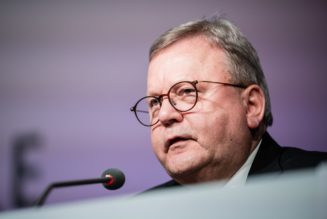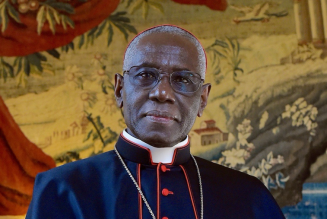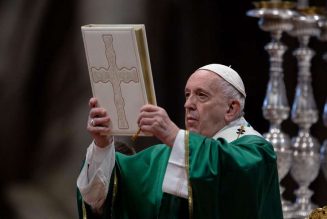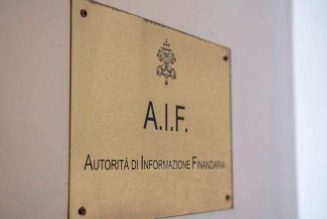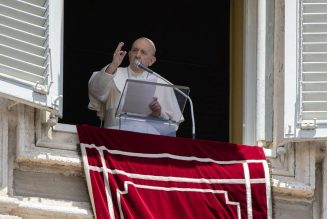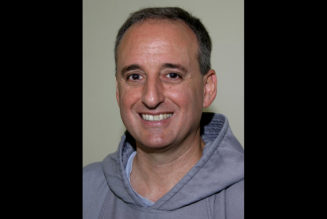Pope Francis presides over Mass on the Third World Day for Grandparents and the Elderly, and praises intergenerational exchange as a means to learn the beauty of life and strengthen the life of the Church.
By Devin Watkins
As the Church celebrated the 3rd World Day for Grandparents and the Elderly on Sunday, Pope Francis presided over Mass in St. Peter’s Basilica for around 8,000 elderly people from across Italy.
The theme for this year’s iteration of the World Day is “His mercy is from age to age,” recalling a passage from Luke’s Gospel.
In his homily at Mass, Pope Francis reflected on each of the three parables recounted in the day’s Gospel reading, focusing on the common theme they share of “growing together”.
Wheat and weeds growing together
Jesus’ first parable in the Gospel passage, said the Pope, notes that wheat and weeds grow next to one another in the same field, which therefore reminds Christians to be realistic in our outlook on life.
“In human history, as in each of our lives, there is a mixture of light and shadows, love and selfishness,” he said. “Good and evil are even intertwined to the point of seeming inseparable.”
He said that such a realistic attitude pushes aside ideologies and helps us realize that evil dwells not only “outside” of ourselves, but must also be confronted within ourselves.
Patient trust in the Lord
The Pope went on to say that Christians should not seek to uproot the weeds of evil and thereby pull up the good wheat through an “impulsive and aggressive” attitude.
“We frequently see the temptation of seeking to bring about a ‘pure society’, a ‘pure Church’,” he said, “whereas in working to reach this purity, we risk being impatient, intransigent, even violent toward those who have fallen into error.”
The correct attitude in the face of evil, said the Pope, is patience, which leads us to treat others with respect, and the awareness that “the definitive victory over evil is essentially God’s work.”
Accepting the mystery of life
He then recalled that the elderly often look back on their lives with nostalgia and the desire to undo past mistakes. Yet, he said, Jesus invites grandparents and the elderly to “accept the mystery of life with serenity and patience, to leave judgement to Him, and not to live regretful and remorseful lives.”
“Old age is indeed a blessed time,” he said, “for it is the season to be reconciled, a time for looking tenderly at the light that has shone despite the shadows, confident in the hope that the good wheat sown by God will prevail over the weeds with which the devil has wanted to plague our hearts.”
Fruitful exchange for a fraternal society
Pope Francis then turned to the second parable, which tells how the kingdom of heaven grows in human history like a tiny mustard seed.
Growing up and growing old, he said, resembles the growth of the mustard seed into a large tree where others can find shade and comfort.
Grandparents, he added, offer a place for children and grandchildren to learn the warmth of a home and experience care and tenderness.
“In this fruitful exchange,” he said, “we can learn the beauty of life, build a fraternal society, and in the Church be enabled to encounter one another and dialogue between tradition and the newness of the Spirit.”
Handing on the faith
Turning to the third parable, which speaks of mixing yeast and flour to make dough rise, Pope Francis highlighted the verb “to mix” as an invitation for intergenerational exchange.
Individualism and selfishness can thus be overcome, he said, so that elderly people are not marginalized or abandoned in their loneliness.
In conclusion, the Pope urged young people and the elderly to share their gifts and grow together, listening to each other, talking together, and supporting one another.
At the end of the Mass, a group of grandparents offered an example of the Pope’s words as they symbolically handed World Youth Day crosses to several young people who will take part in the WYD event in Lisbon, Portugal, on 1-6 August.







